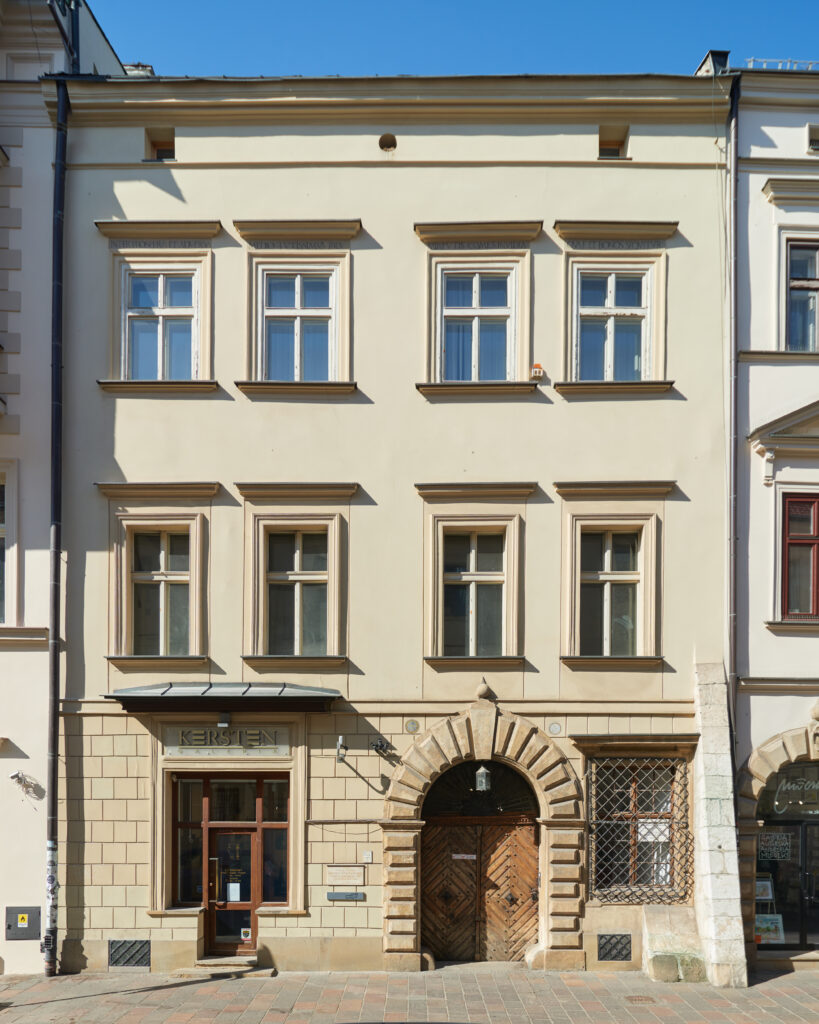We use cookies to help you navigate efficiently and perform certain functions. You will find detailed information about all cookies under each consent category below.
The cookies that are categorized as "Necessary" are stored on your browser as they are essential for enabling the basic functionalities of the site. ...
Necessary cookies are required to enable the basic features of this site, such as providing secure log-in or adjusting your consent preferences. These cookies do not store any personally identifiable data.
Functional cookies help perform certain functionalities like sharing the content of the website on social media platforms, collecting feedback, and other third-party features.
Analytical cookies are used to understand how visitors interact with the website. These cookies help provide information on metrics such as the number of visitors, bounce rate, traffic source, etc.
Performance cookies are used to understand and analyze the key performance indexes of the website which helps in delivering a better user experience for the visitors.
Advertisement cookies are used to provide visitors with customized advertisements based on the pages you visited previously and to analyze the effectiveness of the ad campaigns.
Europa Nostra Heritage Hub for Central and Eastern Europe in Kraków is a regional centre of Europa Nostra, a pan-European federation of organisations involved in the protection, management, and promotion of cultural and natural heritage in forty European countries. It is run by one of the oldest non-governmental organisations in Poland, the Society of Friends of Kraków History and Heritage (Towarzystwo Miłośników Historii i Zabytków Krakowa), member of Europa Nostra since 1990. The hub operates as a think-tank, an observatory, and a laboratory.
As a platform, we strengthen the voice of NGOs from Central and Eastern Europe in shaping European heritage policy.
We facilitate cooperation between civic organisations and heritage institutions in the region.
We increase the visibility of activities supporting heritage in the region.
We deal with various aspects of cultural and natural heritage, both in and away from cities, through major projects and small initiatives.
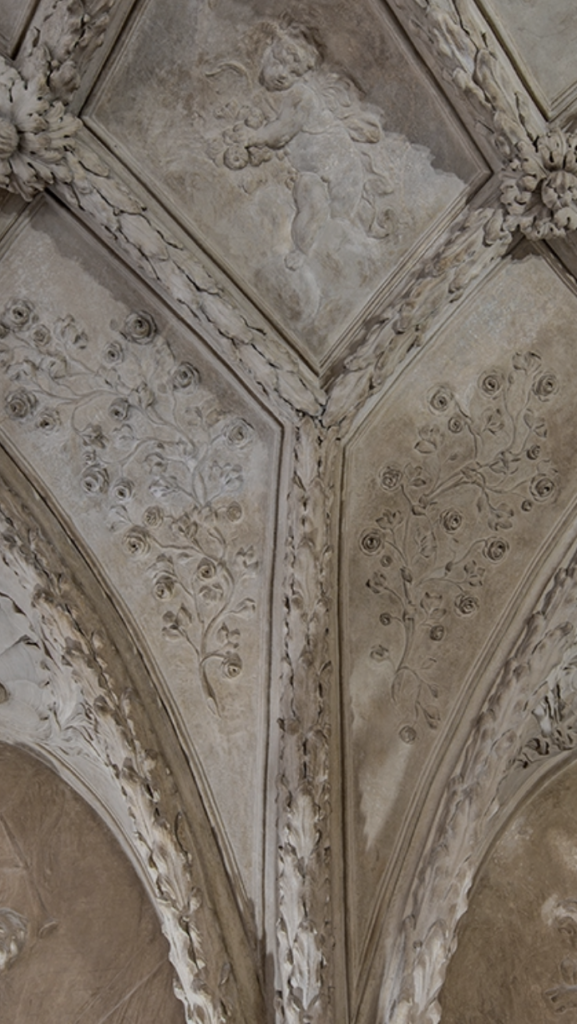
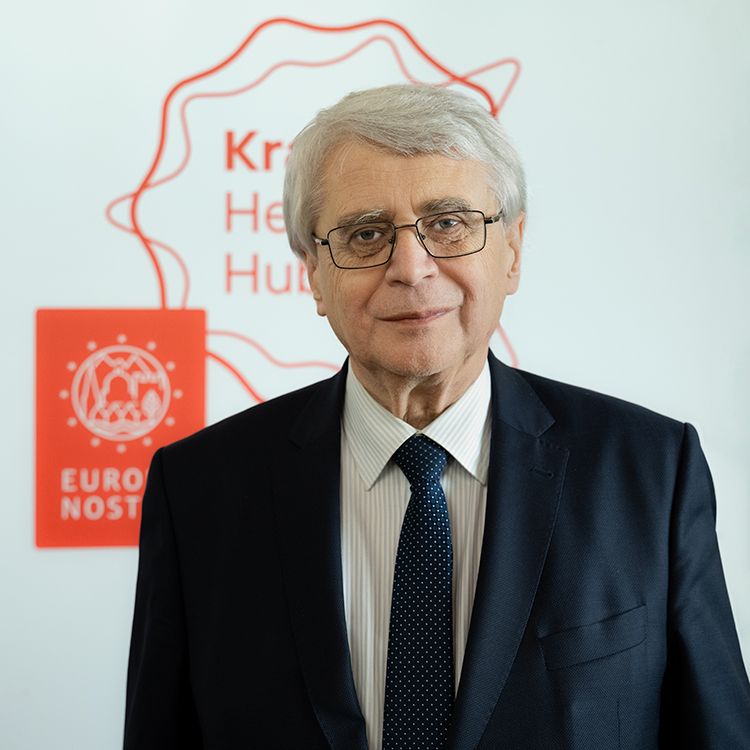
Vice-president of Europa Nostra since 2018. Polish Art Historian and Economist, Professor of Humanities, a member of the Polish Academy of Arts and Sciences. He is the founder of the International Cultural Centre in Krakow, and was its director since its inception in 1991 until 2018. He is the head of the Department of Economic and Social History and the UNESCO Chair for Heritage and Urban Studies at the Kraków University of Economics.
He specializes in urban studies, social and art history, as well as the theory and protection of cultural heritage. Between 2016 and 2017 he was the President of the UNESCO World Heritage Committee.
He is a member of many organizations and associations including The Society of Friends of Kraków History and Heritage he is a current president. He is the author of over 400 academic works, including a number of books published in many languages.
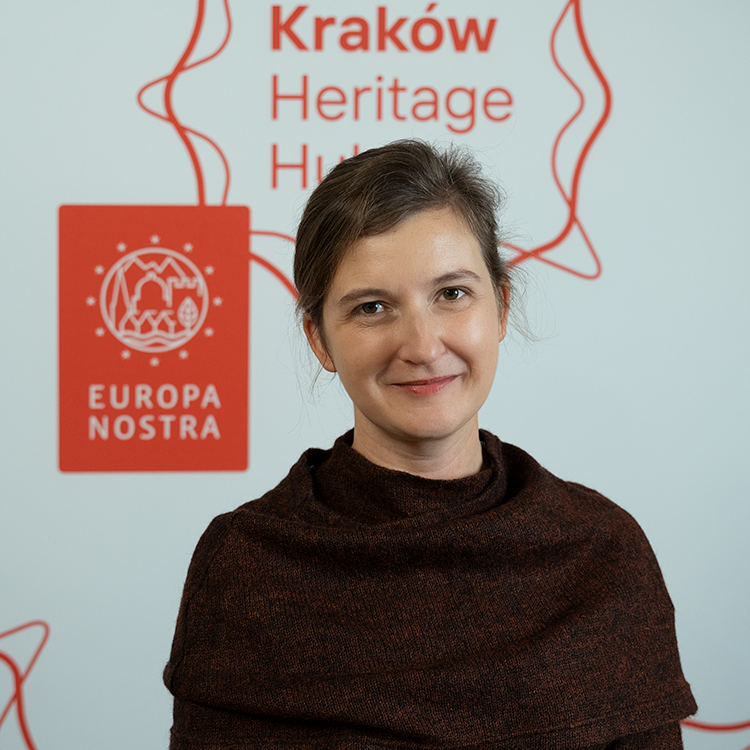
Head of the Europa Nostra Heritage Hub for Central and Eastern Europe, Assistant Professor at the Institute of European Studies, Jagiellonian University in Krakow, and founding Director for Programming in the Toy Museum in Krakow. Previously worked at various positions at the International Cultural Centre in Krakow (2005–2020).
She graduated in art history (2005) as well as journalism and communication at the Jagiellonian University (2007), received a doctorate in museum studies (2012). Her current research project is “Participation and the Post-Museum”. She created “Atlas of Museum Participation”. Author of four books, including two published in English, “Museums and Centers of Contemporary Art in Central Europe after 1989” (Routledge, 2020) and “Art Museums in Australia” (Jagiellonian University Press, 2017), co-author of Europa Nostra report „Cultural Heritage Counts for Europe” and co-editor of “The Power of Heritage. Socio-Economic Examples from Central Europe” (with Joanna Sanetra-Szeliga, International Cultural Centre, 2017).
She worked in the editorial team of the “Architektura & Biznes” magazine (2019-2022), was a member of the editorial office of the “HERITO” quarterly and the local editor of “RIHA Journal” – an international scientific journal in art history (2010–2016). Member of International Council of Museums (ICOM) and International Association of Art Critics (AICA). Fellow in the Australian Institute of Art History, University of Melbourne (2014/2015) and at the University of Cambridge (2013).
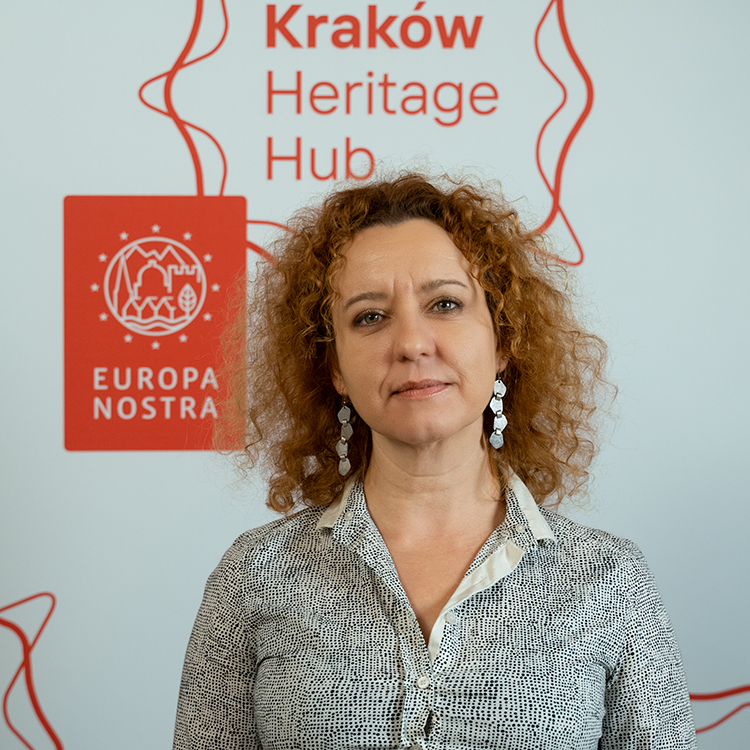
Deputy Head of the Europa Nostra Heritage Hub for Central and Eastern Europe, Adjunct Professor at the Institute of Spatial Development and Urban Studies (UNESCO Chair in Heritage and Urban Studies) at the University of Economics in Krakow and a consultant at the Center for Culture Statistics at the Statistical Office in Krakow.
She is a graduate of the University of Economics, where in 2017 she defended her doctoral dissertation on the role of culture in urban development, based on the case study of the competition for the title of the European Capital of Culture 2016 in Poland. She has experience in working in public administration (Department of European Affairs at the Ministry of Culture), the cultural sector (Institute of European Heritage in the International Cultural Center in Krakow) and cooperation with the non-governmental sector (as the Polish coordinator of the Anna Lindh Euro-Mediterranean Foundation for Dialogue).
She conducts research on the socio-economic potential of culture in urban development, the use of cultural heritage in innovation and diplomacy processes, the impact of mega-events on historic cities and the historic cities’ resilience. She is an author and editor of publications on the role of culture in local development, cultural policy, European Capitals of Culture and intercultural dialogue.
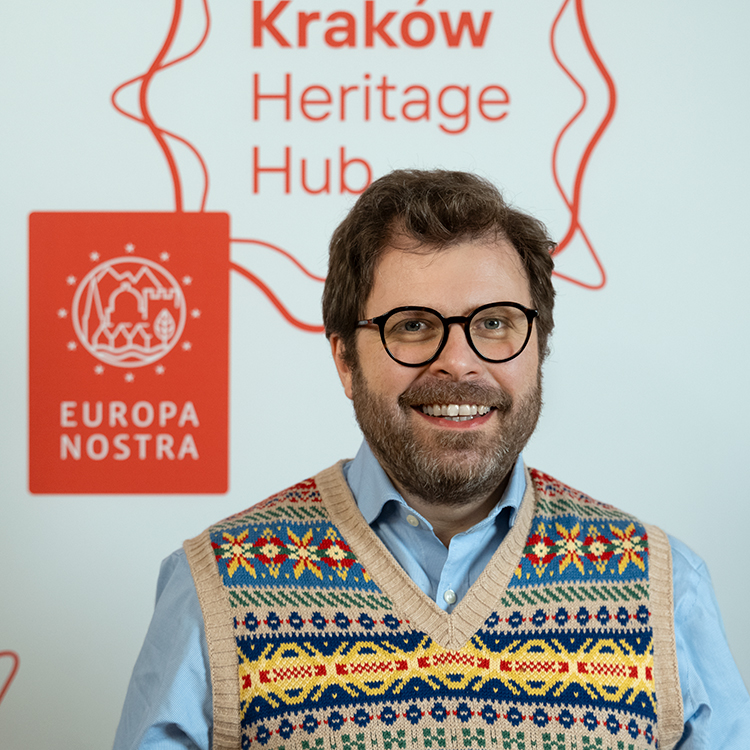
Communication Specialist at the Europa Nostra Heritage Hub for Central and Eastern Europe.
John Beauchamp is a PhD Researcher at the Jagiellonian University in Kraków, Poland. He was awarded his BA in Polish and East European Studies in 2004 from University College London and gained his MA in European Studies in 2007 from the Jagiellonian University.
Professionally, John is an audio producer and broadcast journalist. At the Europa Nostra Heritage Hub for Central and Eastern Europe, he makes podcasts on regional heritage topics and collaborates across the board on the Hub’s ongoing projects. He has two decades’ experience in broadcasting and audio production, including management positions at Polskie Radio and Culture.pl, a website supported by the Polish Ministry of Culture and National Heritage.
His research interests lie at the intersection of heritage and digital media with an emphasis on audio storytelling and authenticity, immersive narratives, and industrial heritage.
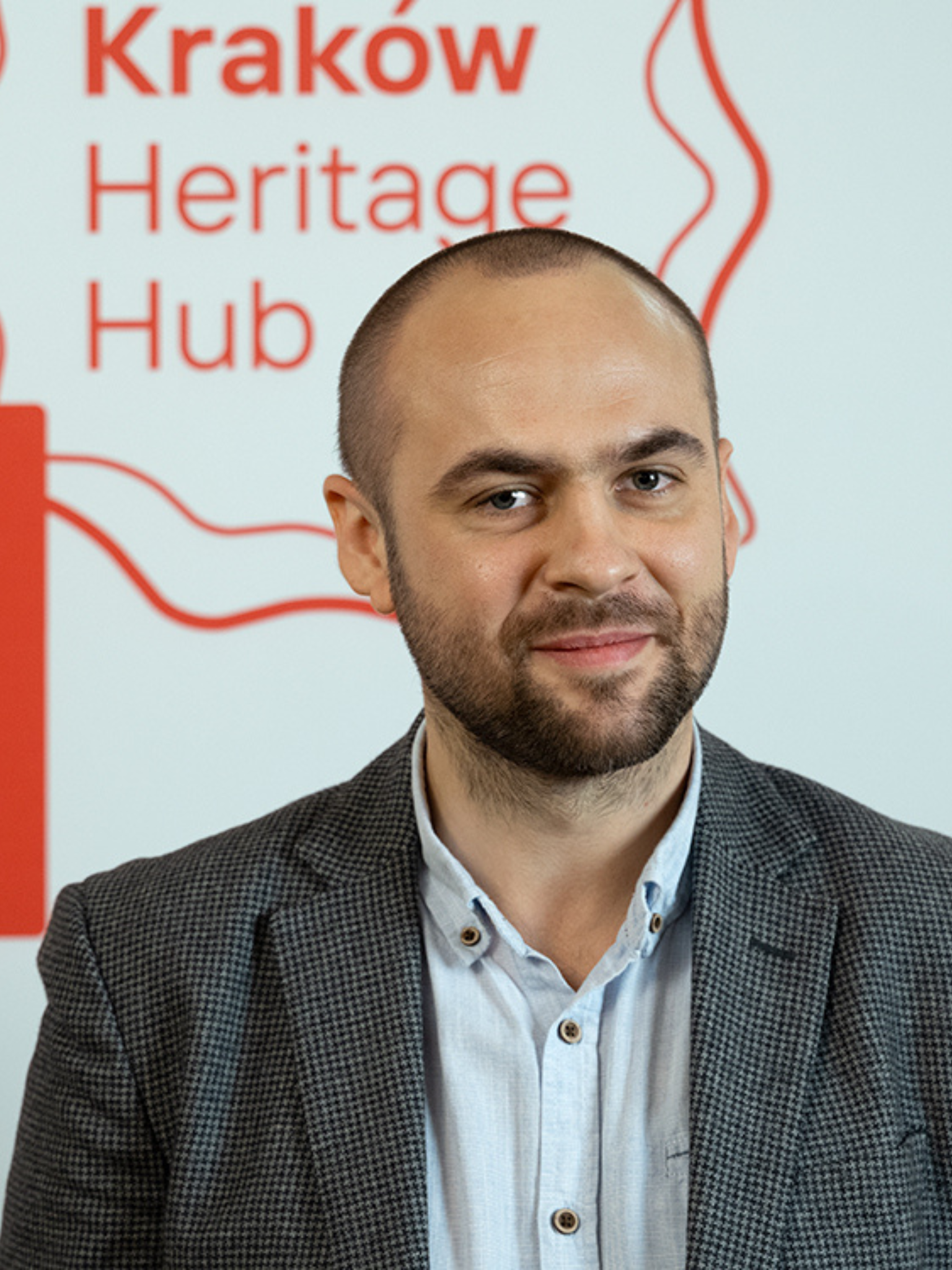
Scientific Communication and Promotion Specialist at the Europa Nostra Heritage Hub for Central and Eastern Europe.
He is a museum professional, historian, and promoter of the history of the Jagiellonian University, with a primary focus on the university’s history during the Old Polish period. He serves as an assistant professor at the Jagiellonian University Museum, where he is the curator of numismatic, sigillographic, and medal collections. He actively manages the social media account “historiUJemy” and collaborates with the Jagiellonian University monthly magazine “Alma Mater,” where he regularly publishes articles. Additionally, he is a co-author of the first board game of the Jagiellonian University, “Gaudeamus! Build a Medieval University.”
Since 2021, he has also been collaborating with the International Cultural Centre in Krakow, focusing on communication and promotion in new media.
Europa Nostra Heritage Hub for Central and Eastern Europe is operated by the Society of Friends of Kraków History and Heritage (Towarzystwo Miłośników Historii i Zabytków Krakowa).
The Society established in 1897 is one of the oldest non-governmental organisations in Poland. Focusing around its address at ul. Św. Jana 12 (previously at the headquarters of the National Archives at ul. Sienna 16) the most outstanding experts on the history of Krakow and, speaking today’s language, city activists, the Society over the decades has had a real impact on the appearance of Krakow on the one hand, and on the perception and knowledge of the city on the other. As a member of Europa Nostra, the Society is actively involved in shaping the European, civic model of thinking about heritage. The Society is the oldest Polish member of this international organisation, and the president, Professor Jacek Purchla is also its vice president.
The Society is located in a historic tenement house – kamienica Krauzowska – at ul. Św. Jana 12, in the heart of the World Heritage listed centre of Krakow. The house was buit in 14th century in Gothic style. Its name comes from Krzysztof Krauze, city councilor who owned it in the 17th century. His efforts resulted in placing the eagle in the coat of arms of Kraków. The founding member of the Society, Klemens Bąkowski, who died in 1938, bequeathed the tenement house to the Society in his will. The Society regained the rights to it after the war in 1947, and its seat has been located here since 1972 (previously it functioned in the building of the Archives of Historical Records of the City of Krakow at ul. Sienna 16).
Hub’s activities are conducted in two representative rooms on the first floor, which in 2022 regained their former splendour after major conservation works that lasted several years.
